The Scent of Success: A Refugee’s Blossoming Dream
Many talented refugees lack financial means to start businesses. This is a story of Nesrin, a refugee supported by INGEV and DRC, who turned her dream into reality.
It all started with a flower
The name, Nesrin, refers to a species of delicate flowers. You can sense it the moment you meet her. Her charming face and calm voice reflect the delicate fragrances in her shop, where golden sunlight streams through the windows. The air is filled with the scents and colors of vibrant flowers, while the walls are decorated with different bouquet designs. At the corner, a shop fridge contains various types of chocolate. Nesrin has created a small piece of heaven.
She arrived in Türkiye from Syria in 2014, bringing her passion for plants and nature from her family’s farm in their hometown, Raqqa.

Nesrin is working in the flower shop. She began working as an employee before opening her own business.
Watching agricultural engineers visiting our farm to check on the plants inspired me to study this field.
Nesrin, a flower shop owner
Facing reality
Determined to pursue her passion, Nesrin improved her Turkish language skills and studied agricultural engineering at Harran University in Şanlıurfa. She had big dreams, but after graduation, they were crushed by the harsh reality.
I searched for a job for months with no luck although I had the Turkish citizenship, which eliminated the work permit challenging process for her. The only openings available were at the Ministry of Agriculture and required high qualifications and experience.
Nesrin, a flower shop owner

Nesrin is designing a bouquet for a client. She bacame fond of this profession since she started working at a shop.
.
Fate had another plan for her. One day, she was buying some flowers when the owner began chatting with her. Impressed by her language skills and educational background, he offered her a job assisting Syrian customers who spoke little Turkish.
I have always loved flowers: the way they feel, look and smell. I used to tell people in the past that I would not mind working in a flower plantation. I was happy to take the job.
Nesrin, a flower shop owner
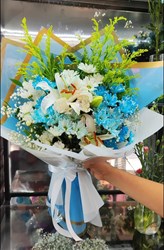

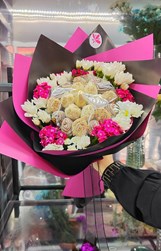

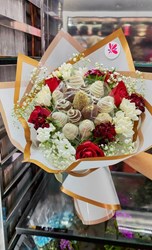

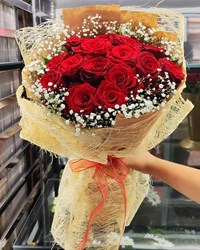

Challenge accepted
Despite Nesrin’s strong love for flowers, flower decoration was a new world to her. Her first attempt at arranging a bouquet was far from satisfactory, but she was determined to succeed.
The second bouquet amazed everyone. It was the one she would not forget.
Within a year and a half, Nesrin crafted hundreds of bouquets, using her knowledge to make the flowers last longer. She fell in love with this profession. Still, she could feel the limitations of traditional flower decoration methods.

Nesrin is in the flower shop in Şanlıurfa.
A blossoming business
Nesrin began thinking of opening her own shop, but she needed financial support. Unsure where to start, a mere coincidence led her to a Facebook ad on Business Development Services (BDS). Funded by the German Federal Ministry for Economic Cooperation and Development (BMZ) through the German Development Bank (KFW), the Business Development Services (BDS) is part of BRIDGES which provides individuals with entrepreneurial spirit from refugee and host communities with grants to accelerate their ventures and training to equip them with essential knowledge to launch their own businesses. Those activities are implemented by İnsani Gelişme Vakfı (INGEV).
This intervention is crucial, as it does not only equip refugees with the necessary tools for formal businesses but also help reduce reliance on external assistance. This support creates job opportunities, not just for refugees but also for the host community, while contributing to local economic growth. Ultimately, such initiatives foster long-term resilience and dignity, empowering refugees like Nesrin to build sustainable livelihoods and thrive in their host society.
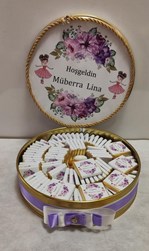

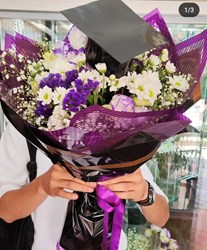

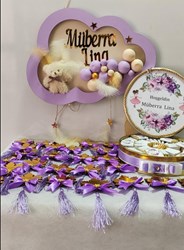

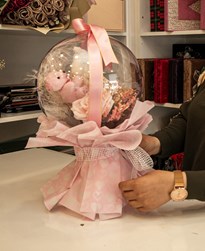

INGEV’s training was incredibly helpful. I learnt financial management, tax law and how to market my shop through social media. I did not know about these issues because the shop owner used to manage them.
Nesrin, a flower shop owner
Working for the dream and living it
Filled with enthusiasm, Nesrin received a grant and opened her shop in September 2023. The business went slow in the first two months, but it blossomed, just like her flowers.
The project helped me build a sustainable business. Having my own shop allows me to be independent and think out of the box.
Nesrin, a flower shop owner
.
Nesrin’s journey is not over yet. She is now planning to expand to gift design. With optimism, she is well prepared for this growth, because the shop has given her something more than a livelihood. It has given her self-confidence.

Nesrin is working in her flower shop.
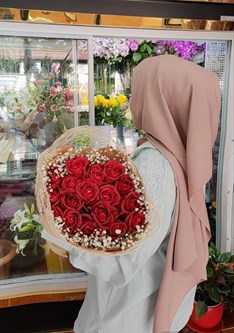

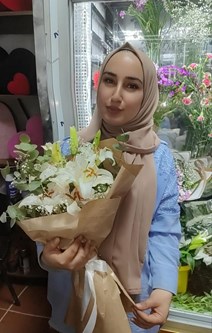

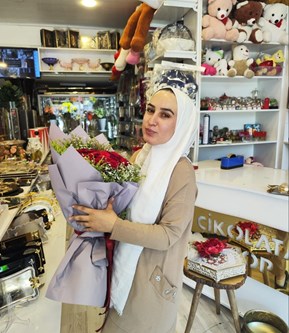

Breaking barriers to employment for refugees
Nesrin's success story illustrates the critical role that targeted support programmes can play in helping refugees overcome the systemic barriers to formal employment. Her journey reflects the broader challenges faced by thousands of refugees in Türkiye, such as obtaining business license and having the tools and financial means to start their own businesses, and only few of them were able to receive start-up grants. INGEV and DRC’s intervention is a viable model for addressing these challenges. However, this support must be scaled and sustained. For refugee entrepreneurship to thrive, policymakers must create an enabling environment for start-ups, in particular youth-led businesses, while increased international donor funding is vital for these initiatives. The benefits are clear: refugees like Nesrin can build sustainable livelihoods, contribute to local economic growth, and strengthen social cohesion in their communities. Through continued advocacy for refugee economic inclusion, the potential of thousands more refugees can be unlocked, fostering long-term resilience for both refugees and host societies.